 At a recent gathering at the Columbia Law School Conference, Gary Gensler, the chair of the U.S. Securities and Exchange Commission, addressed the assembly on the topic of the digital currency landscape. His discourse highlighted the “benefits of mandatory disclosure,” with Gensler humorously alleging that certain “participants in crypto securities markets that seek to avoid […]
At a recent gathering at the Columbia Law School Conference, Gary Gensler, the chair of the U.S. Securities and Exchange Commission, addressed the assembly on the topic of the digital currency landscape. His discourse highlighted the “benefits of mandatory disclosure,” with Gensler humorously alleging that certain “participants in crypto securities markets that seek to avoid […]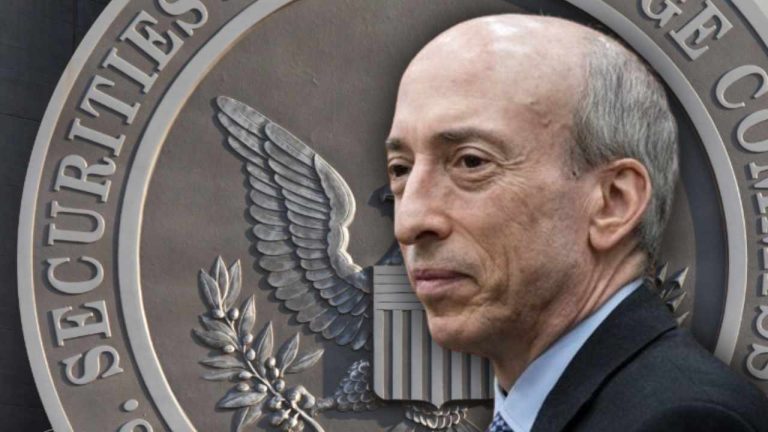 U.S. Securities and Exchange Commission (SEC) Chairman Gary Gensler has cautioned about crypto investing. “This is a highly speculative asset class. One could just look at the volatility of bitcoin in the last few days,” he stressed, warning that thousands of crypto tokens may be securities. Gary Gensler’s Crypto Investment Warning The chairman of the […]
U.S. Securities and Exchange Commission (SEC) Chairman Gary Gensler has cautioned about crypto investing. “This is a highly speculative asset class. One could just look at the volatility of bitcoin in the last few days,” he stressed, warning that thousands of crypto tokens may be securities. Gary Gensler’s Crypto Investment Warning The chairman of the […]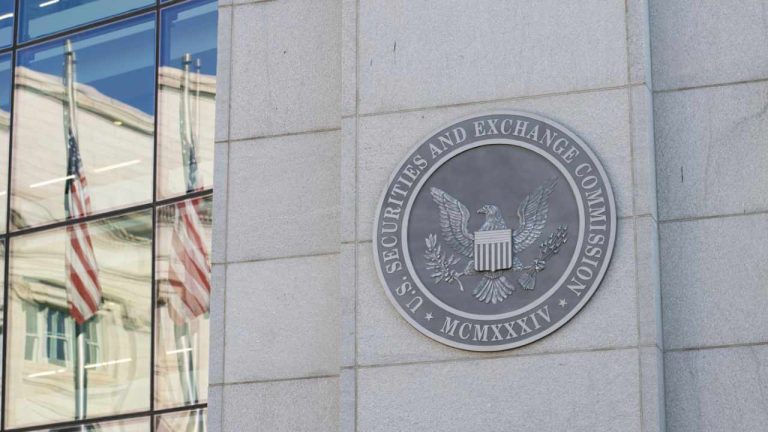 A U.S. district judge has sided with the Securities and Exchange Commission (SEC) in a ruling that declares the trading of certain crypto assets on secondary markets to be securities transactions. This decision emerged from an insider trading case involving crypto exchange Coinbase’s former product manager Ishan Wahi, his brother Nikhil Wahi, and their friend […]
A U.S. district judge has sided with the Securities and Exchange Commission (SEC) in a ruling that declares the trading of certain crypto assets on secondary markets to be securities transactions. This decision emerged from an insider trading case involving crypto exchange Coinbase’s former product manager Ishan Wahi, his brother Nikhil Wahi, and their friend […]
According to CoinGecko, nearly $85 billion worth of crypto falls under the category of “alleged SEC securities.”
CoinGecko launched a new index tracking the biggest crypto tokens viewed as likely securities by the United States Securities and Exchange Commission (SEC).
The ‘Top Alleged Securities Coins’ page sorts the selection of crypto assets by market capitalization, placing Binance Coin (BNB) at the top of the list — followed by Cardano (ADA), Solana (SOL) and TRON (TRX).

A CoinGecko spokesperson told Cointelegraph that the index was launched in the first week of August and was constructed by compiling a selection of the most notable tokens which had been deemed securities by the SEC in past lawsuits.
In its most recent lawsuits against crypto exchange giants Coinbase and Binance, the financial regulator brought the number of tokens it views as securities up a grand total of 68 — while CoinGecko only lists 24.
According to CoinGecko’s page, the top tokens included in the SEC’s litigated remit of the crypto space cover at least $84.9 billion of the entire market, approximately 7.5% of the $1.21 trillion total crypto market capitalization.

Related: SEC files complaint against Hex founder for allegedly offering unregistered securities
Meanwhile, SEC Chair Gary Gensler has gone to great lengths to clarify that the overwhelming majority of crypto assets should be considered securities, having previously claimed that “everything other than Bitcoin” is a security, and thus falls under the agency’s remit.
If Gensler is correct, it would mean that almost every last one of the approximately 25,500 cryptocurrencies listed on crypto data platform CoinMarketCap would be regulated by the SEC.
Magazine: ‘Elegant and ass-backward’: Jameson Lopp’s first impression of Bitcoin

The firm said it remains a “supporter” of the crypto sector and suggested that the move was purely to avoid any potential regulatory non-compliance.
Retail trading platform eToro has halted purchases of Algorand (ALGO), Decentraland (MANA), Polygon (MATIC), and Dash (DASH) for customers in the United States in response to their labeling as securities in recent SEC lawsuits.
The move comes just a few days after competitor Robinhood also halted support for MATIC and two other SEC-deemed securities — Cardano (ADA), and Solana (SOL).
In a June 12 Twitter thread, eToro US noted that it had reviewed its crypto listings ”in light of the rapidly evolving regulatory landscape” and “recent developments” with the SEC.
eToro has a framework in place which reviews the cryptoassets we offer in light of the rapidly evolving regulatory landscape. Due to recent developments, we will be making some changes to our crypto offering for US customers. (1/5)
— eToro US (@eToroUS) June 12, 2023
The assets were officially delisted as of 6:00 am ET on July 12, however, eToro US users will still be able to hold and sell these assets.
“We remain a supporter of crypto assets and believe in the importance of offering our users access to a diversified range of asset classes, which includes stocks, ETFs, and options. We are committed to working closely with regulators around the world to shape the future of the crypto industry and champion access for the ordinary investor,“ the firm stated.
The firm has essentially opted to err on the side of caution, given that the SEC has now asserted in lawsuits against Binance and Coinbase that major assets such as ADA, SOL, MATIC, MANA, ALGO, and several others are securities.
Related: Breaking: US lawmakers file ‘SEC Stabilization Act’ to fire Gary Gensler
Notably, eToro hasn’t mentioned anything about Solana or Cardano, which were also deemed as securities in the recent lawsuits.
interesting
— lightspeed mert | helius.dev (@0xMert_) June 12, 2023
eToro is removing Polygon and Algorand but not Solana pic.twitter.com/ZjigTmLmO0
This isn’t the first time eToro US has moved to halt access to certain assets in response to the litigation-friendly SEC. In December 2020, the firm also delisted Ripple (XRP) following the SEC’s lawsuit against Ripple Labs.
Magazine: Crypto regulation — Does SEC Chair Gary Gensler have the final say?
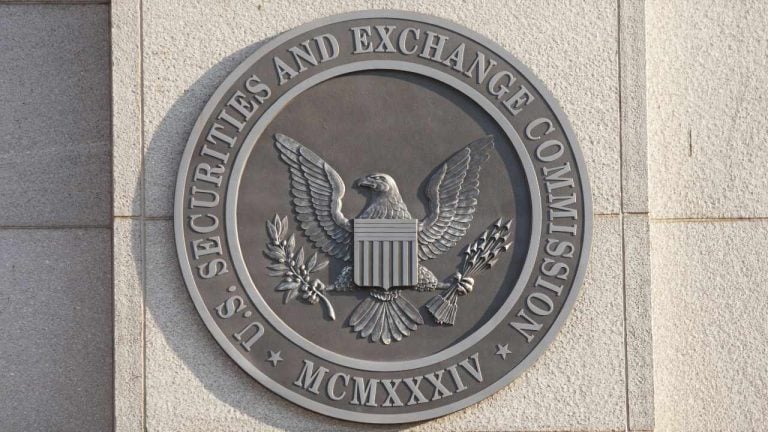 The U.S. Securities and Exchange Commission’s Investor Advisory Committee has advised the SEC to “aggressively” assert authority over crypto assets that are securities. The advisory committee believes that “virtually all, if not all, crypto tokens are securities,” urging the regulator to “make crypto asset-related enforcement a top priority.” SEC Urged to ‘Aggressively’ Assert Authority Over […]
The U.S. Securities and Exchange Commission’s Investor Advisory Committee has advised the SEC to “aggressively” assert authority over crypto assets that are securities. The advisory committee believes that “virtually all, if not all, crypto tokens are securities,” urging the regulator to “make crypto asset-related enforcement a top priority.” SEC Urged to ‘Aggressively’ Assert Authority Over […]
The SEC said Green United’s operation was a fraud and the community was quick to quell fears of the SEC classing crypto mining as a security in the suit.
Software and crypto mining equipment offered by the Utah-based Green United LLC was part of an $18 million "fraudulent scheme" that never mined the crypto it said it would, according to allegations by the United States Securities and Exchange Commission (SEC).
The regulator filed a complaint in a Utah District Court on Mar. 3 against Green United, its founder, Wright Thurston, and a contracted promotor Kristoffer Krohn.
It alleges the company and the two representatives fraudulently offered securities between April 2018 and December 2022 by selling investments in $3,000 “Green Boxes” and “Green nodes” purported to mine the GREEN token on the “Green Blockchain.”
Investors were allegedly told the firm was to develop the Green Blockchain to create a “public global decentralized power grid” and the GREEN token would increase in value based on its efforts with returns of up to 50% a month.
However, the SEC claimed the hardware sold didn’t mine GREEN as it was an Ethereum-based ERC-20 token that could not be mined and the Green Blockchain didn’t exist.
It added the GREEN token was created “several months” after the first hardware sales to investors and was periodically distributed to “create the appearance of a successful mining operation.”
Instead the real scheme, according to the SEC, was using the funds to buy S9 Antminers — Bitcoin (BTC) mining rigs — which were passed off as the Green “boxes” and “nodes” to investors. The firm mined Bitcoin, not GREEN tokens, which the investors “did not receive.”
Meanwhile, the crypto community on Twitter has hosed down one interpretation of the SEC complaint, which suggests that the SEC is going after crypto miners arguing that selling miners or offering hosting for them is a securities investment contract.
The take came from a Mar. 6 tweet from pseudonymous lawyer “MetaLawMan.”
However, crypto advocate and investment advisor, Timothy Peterson, argued the interpretation was a “bad take” adding the case doesn’t “target mining in general.”
Somewhat of a bad take; the SEC's case does not target mining in general, but a specific ASIC that was supposed to mine an ERC-token but instead mined #bitcoin for the ASIC sellers. Alleged fraud. Agree the "investment contract" application to this case is a stretch. But the #SEC… https://t.co/KK5cVqFCAi
— Timothy Peterson, CFA CAIA (@nsquaredcrypto) March 6, 2023
“The SEC is not saying ‘all sales of mining equipment is now a security,’” Peterson clarified.
Related: Lawmakers should check the SEC’s wartime consigliere with legislation
Another crypto commentator, Dennis Porter, CEO of the Bitcoin advocacy group the Satoshi Action Fund, tweeted that “the SEC is not coming after mining” and it “did not classify hosting as a security” and said Green United’s operation was “a scam disguised as mining.”
Please see official documents here explaining what was actually happening.
— Dennis Porter (@Dennis_Porter_) March 6, 2023
A scam disguised as mining. pic.twitter.com/1pUMk1M5NM
The SEC has asked for a court order to require Thurston, Krohn and Green United to cease operations, seeks civil penalties for securities law violations and repay the $18 million in allegedly ill-gotten gains.
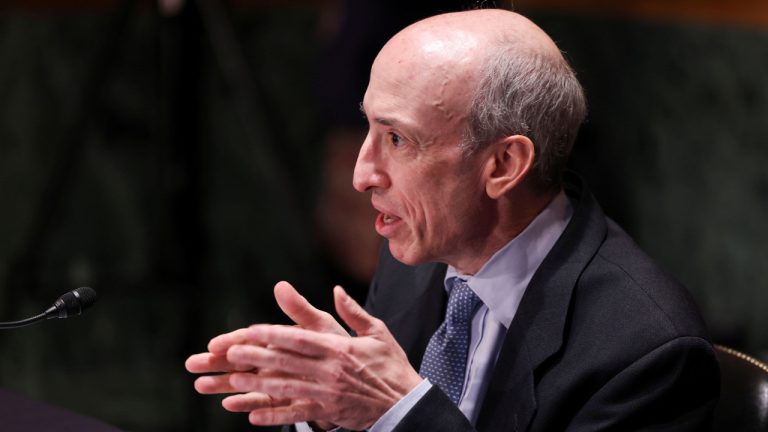 Recently, Gary Gensler, the chairman of the U.S. Securities and Exchange Commission (SEC), expressed his opinion in a detailed interview with New York Magazine’s Intelligencer regarding why he believes crypto assets other than bitcoin are securities. However, Stuart Alderoty, Ripple’s chief legal officer, argues that Gensler must “recuse himself from voting on any enforcement case […]
Recently, Gary Gensler, the chairman of the U.S. Securities and Exchange Commission (SEC), expressed his opinion in a detailed interview with New York Magazine’s Intelligencer regarding why he believes crypto assets other than bitcoin are securities. However, Stuart Alderoty, Ripple’s chief legal officer, argues that Gensler must “recuse himself from voting on any enforcement case […]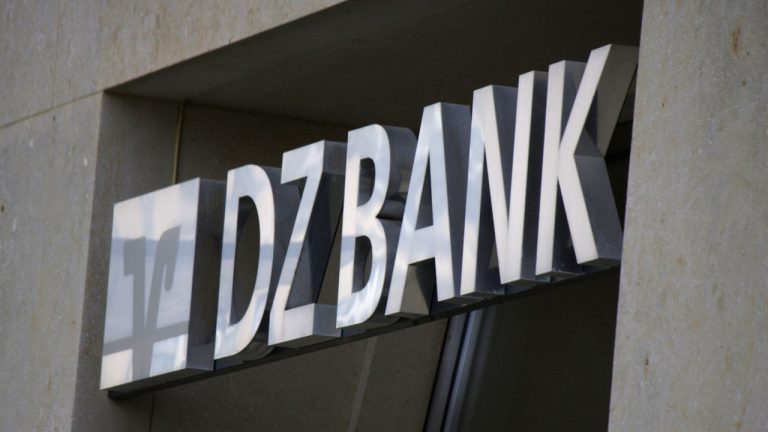 The second-largest bank in Germany, DZ Bank, is preparing to become a provider of custody services for crypto assets. The offering will be facilitated by a partnership with Metaco, a Swiss company that specializes in helping financial institutions to operate in the digital asset space. DZ Bank to Use Metaco’s Harmonize Platform to Launch Crypto […]
The second-largest bank in Germany, DZ Bank, is preparing to become a provider of custody services for crypto assets. The offering will be facilitated by a partnership with Metaco, a Swiss company that specializes in helping financial institutions to operate in the digital asset space. DZ Bank to Use Metaco’s Harmonize Platform to Launch Crypto […]
The ConsenSys founder and Ethereum co-founder said it’s as unlikely as ride-sharing service Uber becoming illegal.
Ethereum co-founder and crypto entrepreneur Joseph Lubin is confident that Ether (ETH) won’t be classified as a security in the United States.
Cointelegraph spoke with Lubin, Ethereum co-founder and founder of blockchain tech firm ConsenSys, in Tel Aviv at the Web3 event, Building Blocks 23.
Asked if ETH could be classed as a security in the U.S. after Ethereum’s transition to a proof-of-stake (PoS) consensus model, Lubin said:
“I think it's as likely, and would have the same impact, as if Uber was made illegal.”
“There would be a tremendous outcry from not just the crypto community but different politicians and certain regulators,” he added.
In September, Securities and Exchange Commission Chairman Gary Gensler suggested that the blockchain’s transition to PoS might have brought ETH under the regulators’ beat.
Gensler believed staking coins gave “the investing public” anticipation of “profits based on the efforts of others.”
Lubin said he was privy to discussions with the SEC and the Commodity Futures Trading Commission “for many years.”

He said around five years ago the regulators were “just trying to wrap their heads around what tokens were.”
“They thought back then that everything was a security. We — I think — helped them significantly understand lots of tokens are not securities, and then they went away and Gary and team now think almost everything's a security.”
Lubin, however, believes that ETH continues to be “sufficiently decentralized” and pointed to its “many use cases that don’t implicate it as a security.”
“There is no centralized set of promoters or builders that is specifically trying to raise the value of Ether and enrich investors,” he added.
“There's a court system in the United States of America that I think would be supportive of arguments that would be made that it is not.”
Lubin said that regulators appear to be more focused on another aspect of Ethereum at the moment, noting that people he knows close to the action in Washington D.C. say “most of the focus is on stablecoins right now.”
“Everybody's talking about it, freaking out. Calling for things to be done.”
In a Feb. 9 Twitter thread, Coinbase founder and CEO Brian Armstrong responded to “rumors” that the SEC was thinking to ban retail consumers from staking crypto.
Related: CFTC head looks to new Congress for action on crypto regulation
“Staking is not a security,” he said, adding it would be a “terrible path for the U.S.” if a staking ban was passed noting it was “a really important innovation in crypto.”
“Hopefully we can work together to publish clear rules for the industry, and come up with sensible solutions that protect consumers while preserving innovation,” Armstrong said.